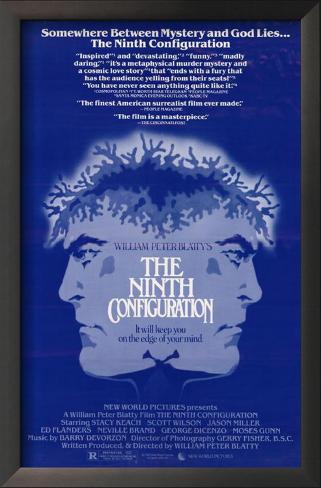Five cities, four countries, five taxi drivers and their passengers. Jim Jarmusch's nocturnal Night on Earth is simple to condense into a single line synopsis, but much harder to explain in terms of mood. Throughout the course of one night we are driven through five cities - Los Angeles, New York, Paris, Rome and Helsinki - in five different moments of time. During this time we see five different situations where human beings, who otherwise would have never met, share a connection.
The narratives within the five vignettes are simple, but individually unique. In Los Angeles, a casting agent, Victoria Snelling (Giancarlo Esposito) tries to convince her driver, sassy tomboy Corky (Winona Ryder) that she may be perfect for a movie she is casting. In New York, East-German immigrant and former circus clown, Helmut (Armin Mueller-Stahl) picks up streetwise YoYo (Giancarlo Esposito) who, after realising Helmut cannot drive a car with an automatic transmission, ends up escorting Helmut around New York. In Paris, a driver from the Ivory-Coast (Isaach de Bankolé) kicks out two drunks (African diplomats) for being rude to him, only to act rudely towards his next passenger, a blind woman (Béatrice Dalle). In Rome, Gino (Roberto Benigni) picks up a Priest, to whom Gino insists on "confessing" all his bizarre sexual encounters, unaware that the priest is having a heart attack in his cab. Lastly, in Helsinki, after his passengers try to tell Mika (Matti Pellonpää), the driver, about the bad day that their inebriated friend had, Mika tells them a story so sad it puts their friend's story to shame.
Whether dealing with cities in his country of birth, or foreign countries; Jarmusch is a poet of the night. Since he began making films, with his debut Permanent Vacation in 1980, Jarmusch seems to understand how human beings shift in their attitudes and behaviour once night creeps in. Tom Waits' score and whiskey and tar-stained vocals help to create Jarmusch's desired mood, as his vocal range and jaunty music underscore the darkly humorous tone and nighttime setting.
Jarmusch has never been interested in telling a cohesive story, instead favouring conversational mood pieces and characters, as each vignette has no obvious construction. The driver picks up a customer or customers, they start talking, the driver drops them off. However, within this time frame a chemistry has formed which would not have happened had they not got into that taxi. For example, In the Los Angeles vignette, Corky tells her passenger how she loves driving taxis and how she dreams that one day she can be a mechanic. Victoria, her passenger, listens and seems sincerely happy that Corky can find such peace driving taxis at night. Later, as Corky drops her off, Victoria asks her whether she wants to be in a movie she is casting, only for Corky to turn her down. However, by this point, Corky and Victoria's personalities are so in tune that Victoria understands, and is probably rather grateful that Corky turned this opportunity down. In the Paris vignette, the nameless driver asks his blind passenger how she knows what sex is like if she has been robbed of one of her five senses. She goes on to explain how she feels sex with her entire being; not just with sight. The driver is perplexed, and honestly jealous that with four senses his passenger will feel and sense things with an intensity he cannot imagine.
These are just two examples of a film brimming with a deep, humanist subtext. Although, unfortunately, with anything which is episodic in its narrative structure there will always be the problem that some stories are better than others. The Los Angeles vignette, for example, while good, is only a taster of what is to come. The New York story, shows how human kindness knows no national boundaries. When German immigrant, Helmut picks up streetwise black-youth, Yoyo, things look like they could not be bleaker. Helmut keeps stalling his cab due to the fact that he does not know how to drive an automatic vehicle. Yoyo decides he will drive himself home with Helmut as his passenger. During this time Yoyo and Helmut bond and, while he may not know this at the time, Yoyo teaches Helmut how to be a better cabbie. Throughout the film, unique friendships are born and then lost as soon as the passenger steps out of the cab, but due to Jarmusch's writing, these friendships will last so much longer not only in the memory of the audience but also (we feel) in the lives of the characters.
The performances are uniformly excellent with Robert Benigni's Gino being a standout. His foul tales of sexual depravity are hilarious, and a marvel of comic timing. Unfortunately, Winona Ryder's Corky is probably the least convincing, but that is only because the rest of the cast are so good. Frederick Elmes' photography is simply gorgeous and, along with Tom Waits' score, underscores the movie's tone. Perhaps not Jarmusch's best known film, but one where Jarmusch continues his interest in and empathy with the human condition.
8/10










